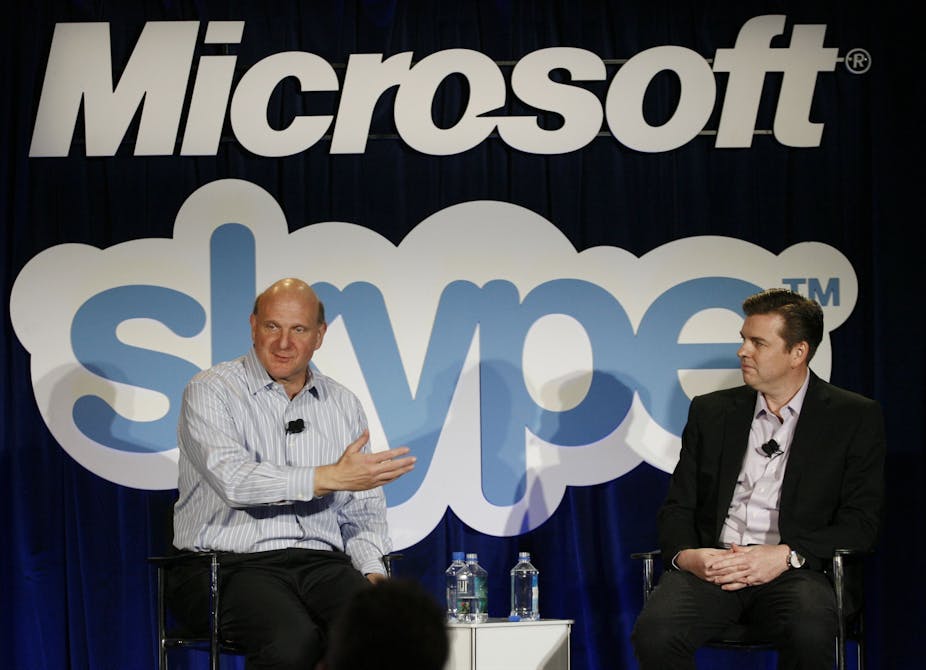Microsoft’s US$8.5 billion Skype acquisition, announced yesterday, gives the US software developer a golden opportunity to expand its business via the internet, including accessing and leveraging the rapidly growing social media market.
This makes sense, given the primary motivation for most acquisitions is they provide the fastest route to growing revenues.
Despite Microsoft’s previous, less-than-successful internet forays things are looking promising. Indeed, the Skype acquisition appears to make a great deal of strategic sense on a number of fronts.
As one of the largest acquisitions in corporate history, the deal is not without risks. But the Skype deal gives Microsoft chief executive Steve Ballmer and his team an opportunity to “change the rules of the game” in their favour.
A competitive context
Microsoft is operating in a globally competitive and rapidly evolving high-tech industry. Success and failure is played out in an environment where there are no effective barriers to hide (IP) behind.
Its key value drivers (success factors) are constituted by multiple layers of speed of innovation, the ability to integrate, and ease of access. This ease of access equates to a need for seamless communication, anywhere any time.
The integration of Skype’s internet telephony and video technology with Microsoft’s Windows platforms (including Outlook and Xbox Live services) will give consumers new, more innovative, effective and flexible means to communicate and transfer information and data.
Multiple benefits
The fact Skype also runs on Macs, Linux, iPhone and Android-based devices will allow Steve Ballmer and his team to design a valuable offering that represents a better deal for consumers.
Of course, for Microsoft’s competitors, the news is not so welcome.
The integration of Microsoft and Skype’s technological capabilities and brand recognition will help Microsoft grow its market share in its traditional software markets.
But, more importantly, it will present new opportunities in those market segments (iPhone and game markets) dominated by Apple.
Microsoft’s strategic logic is impeccable on another front: at very least it will impede and or slow Google’s quest to dominate the communications market.
That said, the real challenge lies in the execution of these ambitions.
The merger will test both Microsoft’s and Skype’s management and staff. Are the operating cultures at both firms compatible?
One real risk is that merger tensions could become a major barrier to the potential evolution and development of the technologies and synergies.
Fortunately, all indications are that given the insights gained by Microsoft from previous experiences this is not likely to occur.
Related coverage

